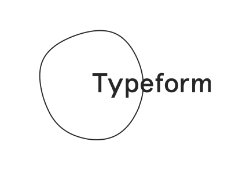11 Top Survey Software Applications for Business
Written By Danica Jovic
Updated: February 6, 2024
Business success requires a finger on the pulse of the market. Customers are fickle, and the internet is a fearsome jungle of competitors. If your product misses a single checkbox on the customer’s wish list, if your service diverges even slightly from the ideal, a competitor will swoop in, scooping up your customers and carrying them far away where you’ll never see them again.
Today, thanks to technological developments, it is easier than ever to track consumers’ needs or conduct employee engagement surveys to find out how your workers are doing. Inexpensive, easy-to-use online survey tools make it easy to create even complex surveys for thousands of customers or employees – in minutes, all without leaving your desk.
Survey software providers support direct communication and provide candid feedback from a wide range of consumers. Survey data will tell you what changes you need to make to keep pace with market demands and help you collect customer feedback or increase employee engagement.
Plus, your audience will be grateful to feel heard and to see that you value their input. It can be just about as easy as it sounds. But before you start emailing questionnaires, check out our list of the best survey applications. We can help you pick the survey platform that’s the best fit for your business.
Show more...
1. SurveyMonkey
Ease of use
good
Customization
excellent
Features
excellent
- ⦿Offline mode
- ⦿Team management
- ⦿Industry benchmarks
SurveyMonkey is a great platform for organizing and distributing surveys that tell you what customers think of a new product. This software makes it easy to conduct a survey, even if you’ve never before created questionnaires, quizzes, or web forms. The platform is widely used among marketers to collect feedback about products and services.
2. Pollfish
Ease of use
good
Customization
good
Features
excellent
- ⦿Advanced targeting
- ⦿Real-time dashboard
- ⦿Filter results by specific criteria
We strongly recommend the Pollfish platform for individuals who want to implement large-scale surveys using powerful online survey tools. The software integrates with many apps, platforms, and websites where you can embed the questions. This lets you share the questionnaire with hundreds, thousands, even millions of people. You can even integrate your questions into mobile apps. Pollfish also gives you all the tools you need to target specific groups, meaning that your survey will be visible to only the specific groups you choose.
3. Typeform
Ease of use
excellent
Customization
excellent
Features
excellent
- ⦿Up to 4GB storage
- ⦿Email notification
- ⦿Calculator for quizzes
If you want to conduct a free survey, Typeform software is a great choice. Your survey can have an unlimited number of questions and you can distribute it at no charge. For a modest monthly fee you can use Typeform’s feature-rich survey builder. You can build surveys and quizzes by using existing templates or draw your survey from scratch. Third-party apps are supported too. Once you complete your survey, you can use Google Sheets to share the results. And don’t worry about data overload – with Typeform you get up to 4 GB of storage space for responses.
4. Alchemer
Ease of use
good
Customization
excellent
Features
excellent
- ⦿Advanced logic and piping
- ⦿Custom made reports
- ⦿Disqualification rules
Alchemer combines advanced tools with powerful management platforms. This software is the best solution for checking the Net Promoter Score (NPS). Real-time data collection provides you with fresh feedback so your teams, sales managers, or customer support agents, can react immediately to improve a product or services. Alchemer platform will introduce you with all the features and tools, so you don’t need to worry about the setting up process even if you don’t know how to create a survey.
5. Qualtrics Research Core
Ease of use
excellent
Customization
excellent
Features
excellent
- ⦿Chatbot surveys
- ⦿Survey templates made for different industries
- ⦿Up to 20 parameters to target your audience
Research Core is part of the comprehensive Qualtrics customer experience management platform. One of the best online survey sites, Qualtrics has a library of more than 100 types of questions. You can formulate and update your questionnaire, add or remove questions, and use skip logic in your survey. The platform is a superb option for marketers, who can easily collect answers from respondents and get clear customer feedback. Qualtrics sells the package only as part of a bundle that includes a full suite of sophisticated analytical tools.
6. Zoho Survey
Ease of use
excellent
Customization
excellent
Features
good
- ⦿Advanced branding
- ⦿Zoho CRM integration
- ⦿White labelling
Zoho Survey allows you to create personalized questionnaires and conduct different kinds of surveys. You can conduct a market research survey, employee satisfaction survey, education survey, and many others. The system is loaded with 200 useful templates, more than 25 question types, and a variety of tools for branding your survey. Moreover, the platform integrates with additional Zoho products such as Zoho CRM, Zoho Campaigns, and MailChimp.
7. SurveyLegend
Ease of use
excellent
Customization
excellent
Features
good
- ⦿Free trial
- ⦿Automatic saving
- ⦿Gif uploading
The SurveyLegend team has developed excellent options for creating interesting and highly effective surveys. You can manage the platform easily even if you never created a survey ever before. A multitude of question types can be added to your questionnaire with a simple drag-and-drop system. Design features include colors, font sizes, themes, and options for inserting multimedia items.
8. Pointerpro
Ease of use
good
Customization
excellent
Features
good
- ⦿Integration with up to 1,200 apps via Zapier
- ⦿Slot machine and scratch card games to motivate audience
- ⦿Advanced question logic
Pointerpro survey software offers a tremendous set of tools for designing interactive quizzes, forms, and surveys. The platform lets you create questionnaires rich with details, colors, and templates. You can insert pictures, logos, and even videos to make your survey interesting and attract a larger audience. The platform provides fast, clear results data in any form you want – chart, text, or statistics.
9. SoGoSurvey
Ease of use
excellent
Customization
good
Features
good
- ⦿Piping
- ⦿Save your questions for future surveys
- ⦿Test-survey option
SoGoSurvey has an extensive set of sample questions that you can plug in to your survey and customize. There are many types of questions, including image choice and grids. Moreover, there are text-box questions that allow users to answer the question in their own words. With this anonymous survey tool, you can conduct both quantitative and qualitative research. The platform deploys multilingual questionnaires too, so you can be sure that your survey will be spread to the entire audience.
10. KwikSurveys
Ease of use
excellent
Customization
good
Features
fair
- ⦿Report segmentation
- ⦿Redirect users to your website after the survey
- ⦿Piping
Simplicity is one of the main benefits that come with KwikSurveys. This survey creator is free of any complicated set-up process. The interface is designed to make survey creation easy and painless. With just a few simple steps, you can create surveys, forms, quizzes, and polls, even if you don’t have previous experience. This affordable survey platform allows you to take up to 100 responses per survey.
11. SurveyPlanet
Ease of use
excellent
Customization
good
Features
good
- ⦿Anonymous surveys
- ⦿Multiple choice for exporting your data
- ⦿Advanced survey themes
SurveyPlanet stands out from its competitors with the ability to distribute comprehensive data reports of survey results. Its navigable, modern dashboard offers easy access and analysis of all the data you gather. Quick, easy survey design means SurveyPlanet is the best choice for those who want to collect fast responses on conference experiences and opinions, for example.
How We Evaluate Tools and Platforms
Online surveys empower product managers and marketers to measure customer satisfaction, assess market perceptions, and build wish lists based on the needs of prospective buyers. And survey management software is so easy to use.
Most products don’t require you to download or install anything – you can do the whole job online. A good survey solution makes it easy to design surveys, distribute questionnaires, gather responses, and analyze results. Honestly, the hardest part is deciding which product to use.
The best survey tools will depend on your needs and budget, so we’ve compiled a list of the most popular and helpful survey platforms for your consideration. There is a good mix of options, too: free online survey software, data reporting tools with affordable prices, and even those with advanced features that place them out of the reach of some small businesses.
Most of these solutions scale up to help you organize sizable research projects and collect data on a much larger scale, while others are more appropriate for smaller, faster projects. Some will make your questionnaire more interesting and attractive with themes and graphical options.
Some are geared to specific demographic groups or help you reach audiences and gather feedback through multiple channels. But no matter which you choose, all of the software on our list will help you create online surveys and distribute them.
There are dozens, maybe hundreds of survey options on the internet. We narrowed it down by applying a distinct rubric, a methodology that helps us sort the prize packages from the wannabes.
We evaluate and document key factors like price, ease of use, flexibility, and distribution options. We examined how well survey applications help you understand and analyze collected data. Because the internet has made the world smaller, we also awarded extra attention to survey software that supports multiple languages.
Pricing and Packages
Price always matters, especially in small businesses. It’s essential to take a hard look at the features offered in a survey package’s base plan and evaluate the capabilities of advanced plans or add-ons. It’s possible to spend a lot if you’re not careful.
It’s easy to run a cost-benefit analysis that shows how survey software pays for itself. It’s less certain that advanced capabilities and versions are worth the price in every case.
We carefully evaluated all the tools for creating questionnaires and gathering user feedback based on their prices.
Almost all survey software providers have a free option. It is usually limited to a small number of surveys or questions, but a free online survey creator might still be a good short-term solution for you. And it’s a great way to evaluate the package and see if you find it easy to use.
In the long run, you will almost certainly opt for a paid version of the software you favor. The survey providers we evaluated set their pricing packages based on the number of surveys you want to conduct, the number of questions and responses per survey, and the set of basic and advanced features included in the package.
We make those details clear in the expanded reviews of each package we evaluated. Whichever platform you decide to pick, take a careful look at the features offered at each step on the pricing ladder.
Ease of Use
One of the things we had in mind when assessing survey providers was the overall user-friendliness of their apps. If the survey platform is too complicated to set up, there is a good chance that you won’t use it to maximum advantage.
Creating surveys to measure customer loyalty or customer experience should be a nearly effortless process, whether they are automated or manual surveys that a team will conduct in the field.
We focused on cloud-based survey platforms that work on a software-as-a-service model. One advantage of cloud-based software is that you can access your survey anytime from any device. Moreover, your data will be safe and secure.
Many of the platforms are geared toward users of mobile devices, so we also determined which are the best survey apps on the market. They let you design, launch, analyze, and customize surveys from your screen no matter where you are.
We awarded extra points to platforms that offer comprehensive how-to guides or video tutorials that show you how to create surveys quickly. This software is inherently easy to use, but a little help is always welcome.
Types of Survey Questions
The quality of data you get from survey customers and potential leads is influenced by preparation and presentation, aka how you deliver surveys to your audience.
The market has come a long way from early yes/no and multiple-choice questionnaires. Modern software publishers provide extensive libraries of question types, ranging from getting employee feedback on company policies through pulse surveys to assessing your net promoter score (NPS) by asking customers how likely they are to recommend your product on a scale from one to ten.
Top-rated survey software can also help you improve your clients’ customer journey and get business insights by creating customer effort score surveys and feedback forms. These will tell you how easy it is for your clients to get an issue resolved, a question answered, or a request fulfilled.
Before using these questionnaire tools, you should be familiar with different types of questions and how to use each to gain actionable insights for your digital marketing teams.
Generally, there are two question models. Close-ended questions let respondents choose from several options. Open-ended questions provide space for respondents to answer in their own words. You can use just one type or combine them, depending on the purposes of your survey.
Software providers have created nearly 100 specialized subcategories: multiple-choice, dropdown, image choice – the list goes on and on. Some questions allow for multiple responses, while others let users respond with ratings. Sometimes you’ll need multiple surveys to properly identify trends and make the most of every customer interaction.
The applications we reviewed help you build your questionnaire by selecting and customizing questions from the library. Drag-and-drop survey builders let you choose whichever type of question you want – quickly and easily.
The best survey websites offer numerous survey banks that can give you a starting point in creating highly detailed, specialized, and sophisticated surveys. They also let you build questionnaires with skip logic or branching questions.
With skip logic, the answer to one question may prevent the user from seeing the following several questions. With branching questions, respondents see different questions depending on their responses to earlier ones.
Distribution Options
The software providers we evaluated offer various options for sharing your surveys, quizzes, and forms. Depending on your audience, your survey could be sent through email or posted on social media channels. If your company has a website, you can embed the survey on a web page so visitors can answer.
Survey platforms can help ensure your questions reach the people you are targeting.
For example, the best enterprise survey software providers from our list have a customer or user segmentation feature that lets you send surveys to specific respondents based on what you know about them: where they live, what their job titles are, whether they are married or not, and so on.
Most providers we reviewed support integration with other business and collaboration platforms. This lets you share your survey and its results with colleagues or a broader audience. Some of the platforms can integrate with popular customer relationship management systems, for instance, or let you automatically collect feedback on specific events.
Some of the providers even let you embed surveys in mobile apps.
Reporting and analytics features
The next metric you should consider when choosing a survey tool is how good it is at presenting its findings. Feedback software should make it easy to see the survey results, and the ability to analyze reports online is one of the key advantages of this method compared to conducting offline surveys.
All survey packages can show you the raw results and the summary of responses, but the best ones can get really detailed, with advanced parameters such as “How many of the respondents answering A or B to question five also gave a rating of 75 or higher in question 21?”
The more advanced surveying tools and platforms provide a wealth of options that help you analyze responses thoroughly, including statistical data, graphic representations, and text reports.
Some survey providers offer real-time reporting so you can see responses as soon as respondents finish answering. This feature lets you measure customer satisfaction and see how users react to your product or service in real-time. Most packages can be set up to send alerts and notifications automatically via Slack or another messaging platform so team members can see feedback immediately and react to it promptly.
The Best of the Best: Survey Providers for All Your Needs
- SurveyMonkey
- Pollfish
- Typeform
- Alchemer
- Qualtrics
- Zoho Survey
- SurveyLegend
- Pointerpro
- SoGoSurvey
- KwikSurvey

Survey Software Reviews
SurveyMonkey
Ease of use
good
Customization
excellent
Features
excellent
- ⦿Detailed reports
- ⦿Visually attractive surveys
- ⦿Integration with multiple marketing tools
SurveyMonkey enables anonymous surveys, polls, and quizzes. This survey software offers free templates and questionnaires as well as detailed analytical reports. The platform is perfect for both small and large companies that want to conduct market surveys.
Pricing, features, ease of use
SurveyMonkey comes with two types of pricing plans (Personal and Business) and several tiers for each. Each plan is billed annually based on the number of users. For example, the first tier of the Business plan starts at $30 per month. It includes team collaboration features for three users. If you want to add more team members, an additional fee is charged.
SurveyMonkey is on of the best survey websites for creating attractive, customized surveys because it has lots of customization tools. The platform offers plenty of types of survey questions, including multiple-choice, open-ended, ranking questions, and dropdown questions. Branching and skipping logic are also supported.
SurveyMonkey customization options give you wide latitude in changing the appearance of your surveys. Yous can choose among different templates and layouts, specifying the font size and color of the text. You can use your company’s branding to customize survey pages with logos, images, and links.
Once you set up your survey, respondents can answer with a PC, Mac, tablet, or smartphone. The platform integrates with many marketing and collaboration tools, including Salesforce, Marketo, Eloqua, MailChimp, and Slack. Although the platform offers 24/7 email survey services for all users, customers who purchased more comprehensive packages will be serviced first. This might be the only imperfection when it comes to SurveyMonkey customer service.
Bottom line
It’s no wonder customers love SurveyMonkey – even before evaluating advanced options like distributing surveys on social media, email, and other channels. These distribution options help you reach a wide network of respondings, generating fast responses that will help you improve your products or services.
Show more...
Pollfish
Ease of use
good
Customization
good
Features
excellent
- ⦿Customizable pricing plans
- ⦿Integration with over 9000 apps
- ⦿Intuitive dashboard
Pollfish is digital survey software for conducting surveys with the broadest reach. It has a large customer base worldwide because it integrates with many apps and websites. The software is equipped with tools that let you target audiences very specifically.
Pricing, Features, Ease of Use
This platform is perfectly suitable for both individuals and companies, depending on which pricing plan you choose. The plans are based on the size of the survey you want to conduct.
If you are looking for a free online survey creator that is both efficient and reliable, Pollfish might be a good choice. The Basic plan is almost free – it will cost you only $1 per question. It handles up to 17 questions per survey and gives access to up to 10 team members within your company or department.
Pollfish is an advanced survey platform for market research. In addition to a variety of valuable tools that let you tailor surveys to meet your needs, the platform integrates with more than 9,000 apps and websites that let you distribute, conduct, and analyze surveys.
Pollfish has an easily navigable dashboard that allows you to build your questionnaire in just a few minutes. Once you set up the survey, it will be sent to Pollfish survey partner apps if you wish, potentially reaching millions of users.
This is essential because it allows you to conduct less invasive branded surveys. Potential respondents get questions on mobile apps and decide if they want to participate or not.
Pollfish has an advanced option for consumer segmentation. You can target the audience by the area where they live or the device they use. Pollfish also has support for creating multilingual surveys.
Bottom Line
This platform is for conducting consumer-focused surveys. It’s a good choice for companies that want untraditional and cost-effective market research.
Show more...
Typeform
Ease of use
excellent
Customization
excellent
Features
excellent
- ⦿Free plan included
- ⦿Easy-to-navigate
- ⦿Integration with various collaboration tools
Typeform is a cloud-based platform with plenty of tools for creating customizable quizzes, questionnaires, and surveys.
Typeform offers the best free survey tools, including an unlimited number of questions, lots of themes and templates, and a variety of options for data analysis. There are three pricing plans based on the number of monthly responses, the size of the storage required, and the number of additional integration and collaboration tools you choose. The price starts at $35 per month. You can save a little by paying a year at a time.
Pricing, Features, Ease of Use
Typeform is online survey software that lets you set up questionnaires, forms, and surveys to see how audience members experience a service or brand. You can see the responses as soon as they are completed because the software has an email notification option. This feature lets you see how customers value your product or service so you can react immediately.
You’ll like this software even if you lack skills and experience in creating surveys. It is easily navigable and doesn’t require coding skills because the whole process is automated. This means that you can start typing a question, and the software will recognize what kind of question you want to make.
The software automatically uses data from previous answers to make the following questions more personalized for the respondent. The platform has various survey tools for creating unique questionnaires and surveys. You can easily insert pictures, charts, or even add videos from YouTube.
Typeform allows the integration of your survey with more than 500 apps and collaboration tools. For example, you can send questionnaires to respondents with Mailchimp or analyze your data with Google Sheets. It also integrates with popular marketing platforms like Salesforce to help you increase your brand awareness.
Bottom Line
Typeform tools and features make this platform very convenient for different surveys. This is one of the best online survey sites on the market and provides fast and easy creation of surveys, job applications, and quizzes.
Show more...
Alchemer
Ease of use
good
Customization
excellent
Features
excellent
- ⦿Advanced customization options
- ⦿Free plan included
- ⦿Unlimited number of questions
Alchemer is an online survey tool that helps companies and individuals collect, analyze, and take action on respondents’ feedback. The thing we like most about this software is that it allows experienced clients to use advanced customization options. You can create a unique survey questionnaire and integrate it with various apps and platforms.
Pricing, Features, Ease of Use
Alchemer operates with several pricing plans tailored for different purposes – including a free plan that lets you do your first three surveys. The $30/month Collaborator plan is designed for simple surveys and polls. It allows unlimited surveys, questions, and responses. The more comprehensive plans, the Professional and Full Access plans, include advanced surveys, integration with marketing tools, quizzes, and more.
It is not easy to find reliable survey software for free – and once you do, it’s going to have limits. The free version of Alchemer lets you create surveys with an unlimited number of questions, but only three surveys at a time and with only up to 100 responses per survey.
This might be a good solution for users looking for a short-term solution, but it’s not satisfying as a long-term solution. Luckily, the company’s paid offerings have few limits – and low prices.
Alchemer is open–source software. Users with coding skills can customize and automate their surveys to their heart’s content. The software includes access to a library with many survey formats and question types.
Also, Alchemer supports the distribution of surveys to users on mobile devices. The platform integrates with many marketing tools and team collaboration apps, including Salesforce, Oracle, Netsuite, and many others.
Bottom Line
Alchemer has a reputation as one of the best customer feedback platforms on the market. It supports integration with your existing software, allowing you to react quickly to feedback. While many other platforms display responses on a dashboard, Alchemer software triggers your apps and displays data that’s already integrated into your existing workflow so you can use and act on it.
Show more...
Qualtrics Research Core
Ease of use
excellent
Customization
excellent
Features
excellent
- ⦿Excellent analytic reports
- ⦿Integrated into a CRM
- ⦿Multitude of great features
Qualtrics Research Core combines the power to create high-quality studies and polls with superior analytic reports, all integrated into a comprehensive customer relationship management system.
Pricing, Features, Ease of Use
Qualtrics does not disclose unit pricing for its survey platform. Organizations that consider Qualtrics can schedule an appointment with a sales professional to help them determine which of the company’s products should be combined in a custom price quote.
Multiple survey reviews cite a $299 annual price for the Qualtrics survey module, but it’s unclear whether this price is correct or current.
Qualtrics might be a little pricey compared to the other products we have reviewed, but we think it deserves to be on our list because of its extraordinary feature set.
Qualtrics has tons of features for creating first-rate surveys, such as branching questions, elaborate themes, diverse templates, and more than 100 question types. Plus, the survey software is just part of a much larger application suite.
The platform is extremely easy to navigate, with a drag-and-drop system, which makes it a good choice for beginners. And if you don’t know how to use Qualtrics, there is a demo video in which an expert will show you how this survey maker works.
Advanced data analysis can take your survey to another level. The software combines your company’s operational data, like sales figures or leads, with “experience data” that explains why things happen and identifies potential improvements that will impact your business.
The Qualtrics platform allows you to integrate customer, employee, brand, and product experience, extracting important lessons from the figures. Moreover, the platform has a predictive intelligence engine that helps you identify key data in the results, so you know where to focus your investments.
The survey software has a free version that includes one survey at a time, ten questions, 100 responses per survey, and additional limits. If you are considering a purchase the software, it makes sense to try the free demo first.
Bottom Line
Qualtrics offers an advanced survey platform that can be used to find out more about customer satisfaction and what they think about your products and brand. The strong analytical tools make the software perfect for larger companies.
Show more...
Zoho Survey
Ease of use
excellent
Customization
excellent
Features
good
- ⦿Free plan included
- ⦿Drag-and-drop system
- ⦿Custom survey themes
Zoho Survey is a cloud-based customer feedback platform. The Zoho survey builder integrates with Zoho CRM, Zoho SalesIQ, and Zoho Sheet. The software is widely used by both small and mid-size companies, allowing them to conduct surveys related to education, human resources, customer satisfaction, product research, and many other fields.
Pricing, Features, Ease of Use
Zoho pricing covers two payment methods, monthly and annual, each with several tiers. There are three monthly plans: Plus (starts at $32), Pro (starts at $43), and Enterprise (starts at $99). Each plan includes an unlimited number of surveys and questions with up to 3,000 responses per month.
Distinguishing the plans are the ability to integrate with other tools, the number of supported users, and a few other features.
You can also use Zoho for free. The free version has plenty of free survey tools and capabilities. It comes with an unlimited number of surveys of up to 10 questions each, with up to 100 responses per survey.
Zoho’s dashboard allows intuitive, simple survey creation. You can create a survey by starting with a Zoho template, or you can begin from scratch. A drag-and-drop system allows you to add questions and arrange multiple pages. You can customize existing themes or make your own survey theme. You can target your audience by age, gender, country, and other factors.
Before you distribute the survey, you can check and see how it looks on different devices. The platform allows easy translation of the survey into 30 languages.
Moreover, this survey tool allows you to see the history of your surveys, published or saved as drafts, and see if they are still active. The report feature lets you see a summary of responses or see individual responses, all of which can be shared with team members and organizations.
Bottom Line
This software outperforms the competition with the ability to call stakeholders to check your survey in real-time and give you feedback on how to improve it.
Show more...
SurveyLegend
Ease of use
excellent
Customization
excellent
Features
good
- ⦿Drag-and-drop system
- ⦿Great free plan
- ⦿Plenty of customization options
SurveyLegend is among the top survey sites that allow you to send an unlimited number of questionnaires, surveys, and tests to your target audience.
Pricing, Features, Ease of Use
There are two billing schedules for those who want to use SurveyLegend – monthly and annually. Whichever you choose, you will be welcomed with a four-tier pricing plan: Starter, Pro, Business, and Legendary.
The Starter plan is free. It lets you run three surveys with an unlimited number of responses, and it provides other interesting features.
The paid plans cost $19, $39, and $89 per month. What distinguishes these packages is the number of surveys you can conduct, the size of the audience you can send questionnaires to, the type of the logic flow, the type and amount of analysis you wish to do, and more.
Survey questionnaire creation goes smoothly with SurveyLegend’s drag-and-drop system. You can easily design forms and surveys from scratch and don’t need to be an expert to build a highly effective questionnaire.
The online survey creator has many text-based and multimedia question types. The platform supports all basic survey features, including logic flow features like branching questions.
Once you create your survey, you can send it via email. You can also publish it on your Facebook account or LinkedIn. The software integrates with many marketing tools, including Salesforce and MailChimp.
This is most likely the platform that offers the richest set of tools and features when it comes to customization. The SurveyLegend dashboard contains lots of elements and details for designing unique templates and pages. You can manipulate colors, fonts, layouts, and multimedia features with ease.
Before you distribute or publish your survey, you can check it in a preview. It will be automatically optimized for all devices.
Bottom Line
SurveyLegend has the best tools for building customized surveys. Individuals or companies of all sizes can benefit greatly from this platform, especially when creating specialized branded surveys.
Show more...
Pointerpro
Ease of use
good
Customization
excellent
Features
good
- ⦿Highly interactive surveys
- ⦿Great variety of templates
- ⦿Automatized surveys
Pointerpro is a robust survey creator widely used by sales and marketing specialists, business owners, teachers, and entrepreneurs to conduct highly interactive surveys.
Pricing, Features, Ease of Use
The pricing plans were created on a monthly and yearly level. There are four plans: Essential, Professional, Enterprise, and ReportR.
Essential starts at $39 per month for unlimited questions and questionnaires, up to 400 responses per month, a rich set of question types, offline options, and many other features. The professional plan costs $59 and supports more complex questions, 2,000 monthly emails, Zapier integration, and more.
The software focuses on creating engaging, interactive surveys and quizzes. The team of designers and developers created advanced features and options to improve the respondent’s experience. The dashboard is highly intuitive and comes loaded with templates, themes, and question types.
The tools for customization allow you to incorporate logos, pictures, music files, and videos to attract the audience. The survey can be sent to respondents via email, Facebook, or any other platform.
Advanced options allow you to create and modify survey flow. For example, the respondent can skip a question automatically based on a previous answer. This makes the whole process faster and more interesting for respondents.
Moreover, your survey will be automatically optimized for all devices and platforms, allowing the audience to complete quizzes on their smartphones at any time or place.
Some Pointerpro reviews show that clients appreciate the offline capability. This means you can set up a survey even when offline.
Bottom Line
Pointerpro is a perfect tool for individuals who want to make their forms, questionnaires, and quizzes attractive.
Show more...
SoGoSurvey
Ease of use
excellent
Customization
good
Features
good
- ⦿Paid plans offer excellent features
- ⦿Fast survey distribution
- ⦿Detailed analytics reports
SoGoSurvey provides features and tools to help you gather reliable feedback on customer experience or product satisfaction. The platform operates with powerful tools for creating, distributing, and analyzing surveys.
Pricing, Features, Ease of Use
SoGoSurvey offers a free online survey tool plan for those who need a basic survey program. This plan includes simple question types, branching questions, and up to 200 responses. However, you should go for paid plans to conduct a more comprehensive research.
There are four pricing plans: Plus, Pro, and Premium, which prices of $25, $40, and $99. The Enterprise+ plan doesn’t have a published price – it’s negotiated on a case-by-case basis by SoGo salespeople. All plans include an unlimited number of surveys per month.
The platform will help you achieve comprehensive data collection by giving you a wide variety of questions, including text box, radio button, image choice, multiple drop-downs, a list box, and many others. Branching questions are supported in survey flow design.
You can start work on a survey by choosing a blank template and building everything from scratch. Or you can load up one of the provided templates and customize it to create a survey that matches your brand.
Once you finish the survey, you can check how it looks on different devices. If you run into trouble or realize you don’t know how to create a questionnaire, you will be glad to know that customer support is available 24/7 every day.
The SoGoSurvey website is one of the best survey sites on the internet and ensures fast and smooth distribution of your surveys. There are several ways to launch your questionnaire, including email and social media platforms. Of course, if you have a website, the platform can embed a survey directly onto it so visitors can participate in your survey.
SoGoSurvey has a robust set of tools for tracking respondent activity, allowing you to collect feedback instantly. You will get a detailed report on your survey, which you can save, download, and share. Moreover, the software has alerts and notifications to remind the audience to answer the questions.
Bottom Line
SoGoSurvey has strong analytical survey tools that provide clients with clear and transparent feedback. You don’t need to be an expert to understand your survey results, either.
Just pick the type of report you want to get (statistical, graphs, cross tabs, individual), and the software will send you a full report designed to fit your needs. Moreover, the software allows you to conduct both quantitative and qualitative research.
Show more...
KwikSurveys
Ease of use
excellent
Customization
good
Features
fair
- ⦿Great free plan
- ⦿Easy survey creation
- ⦿Superb surveys report tool
KwikSurveys is a cloud-based online software survey. The software has been on the market for more than 17 years, making it one of the leading tools for collecting and analyzing customer feedback.
Pricing, Features, Ease of Use
KwikSurvey gives users a wide selection of pricing plans, including a free one. With the free package, you can conduct a simple survey that covers up to 100 responses and unlimited questions.
The other plans are based on the number of users, respondents, and various additional factors. The price ranges from $12 per month for the Essential plan to $59 per month for the Business plan.
There is also a Students and Non-Profits plan that comes with an unlimited number of surveys, responses, and data reports for just $2.99 per month. This is not only a limited free survey tool, but it is also one of the most affordable professional survey solutions.
The survey creation process is straightforward. It lets users who don’t have any experience create outstanding surveys and polls. You can build a questionnaire by choosing question types and inserting them into your survey. You can insert as many questions as you want and customize the appearance of the survey to match your needs.
However, this platform is not for those looking for advanced customization features – it offers only a limited selection of templates.
What makes this platform such a good value is the survey report tool. The software will allow you to see results graphically in real-time. You can save the results on any device you want and distribute them to other team members.
Bottom Line
KwikSurvey is undoubtedly one of the leading tools for creating simple, quick surveys. Moreover, the platform is suitable for both beginners and professional users. It’s the best choice for less-experienced users who want to create quick and easy surveys.
Show more...
SurveyPlanet
Ease of use
excellent
Customization
good
Features
good
- ⦿All plans are affordable
- ⦿Surveys in 20+ languages
- ⦿Anonymous survey tools
SurveyPlanet might be an excellent choice for those looking for robust event survey software. The platform is suited for fast collection of attendee feedback. You can gather information on attendee experiences and opinions by using an unlimited number of surveys, questions, and responses – all at no charge.
Pricing, Features, Ease of Use
Apart from SurveyPlanet’s great set of free questionnaire templates for conducting an unlimited number of surveys, the SurveyPlan team designed one more plan. The Pro plan costs $20 per month, and it has all the features that come with the free plan and more, including the option of uploading images, branching questions, custom themes, and more.
When creating your enterprise surveys, this online survey maker allows you to choose from 10 themes. If you are a Pro plan user, there are additional options for customization. You can pick the theme, color, font, and background appearance. Moreover, the survey can be written in more than 20 languages, including English, Spanish, Chinese, and Arabic.
Users appreciate SurveyPlanet’s clean interface and easy-to-use dashboard. They can upload images and videos into questionnaires with no effort. Once you set up your survey, it is ready for all devices – tablets, mobile, and desktop. Of course, before you share your survey, you can take a quick peek at the preview.
PlanetSurvey provides basic survey analytics and lets you share your survey results online or export the data into Excel or other programs.
It is an anonymous survey tool, meaning that you can conduct completely anonymous research, and your respondents need not give you their personal information.
Bottom Line
SurveyPlanet is one of the best free survey packages for conducting large-scale surveys at a minimum price – or even for free. SurveyPlanet’s main point of attraction is responsive design and the preview function, so you can see how your survey looks on different screens.
Show more...















